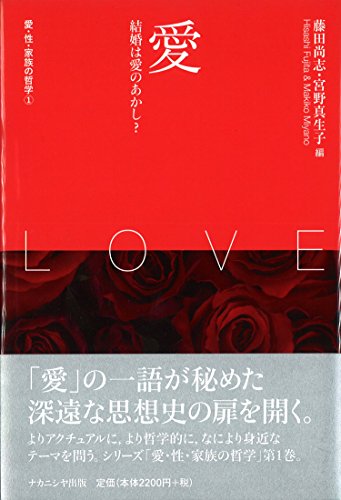7 0 0 0 OA 言葉に出会う現在 永遠の本質を解放する
- 著者
- 宮野 真生子
- 出版者
- 西田哲学会
- 雑誌
- 西田哲学会年報 (ISSN:21881995)
- 巻号頁・発行日
- vol.16, pp.42-57, 2020 (Released:2020-08-10)
What is the “eternal now” in the context of Kuki’s philosophy? In responding to this problem, two lines of approach are possible. The first of these is to ask about the nature of the “eternal now” established within “recurring time.” Here, the “eternal now” that constitutes our problematic is the instant in which a given matter is repeated indefinitely, maintaining its oneness — an instant that Kuki considers a metaphysical and mystical experience. The second approach is to ask about the nature of the “eternal now” revealed at the root of contingency. According to Kuki, this “eternal now” is a “élan vital” that underlies our normal experience of the flow of time, making our reality possible. In the present when we encounter contingency, we perceive a “élan vital” when we know that the reality is “what it is.” In this paper, after analyzing these two “eternal nows,” I clarify their mutual relationship from the problematic of poetic language, and of rhyme in particular. For Kuki, poetry expresses the present as qualitative time, and rhyme is considered particularly excellent for such expression. Rhyme, rather than merely a form of wordplay based on a coincidence of sound, is something in which we feel astonishment, through our experience of this coincidence of sounds and words, that words have been given as “what it is.” Then, as this astonishment becomes more profound with the repetition of this oneness of rhyme and rhythm, we become able to approach the living heartbeat underlying our present, which is to say the “eternal now.” For Kuki, rhyme is a way to connect the contingent present when we encounter words not with an ephemeral moment, but with an eternity that transcends time.
2 0 0 0 OA 佐藤啓介著『死者と苦しみの宗教哲学―宗教哲学の現代的可能性』
- 著者
- 宮野 真生子
- 出版者
- 宗教哲学会
- 雑誌
- 宗教哲学研究 (ISSN:02897105)
- 巻号頁・発行日
- vol.36, pp.107-110, 2019 (Released:2019-05-22)
- 著者
- 宮野 真生子 Miyano Makiko
- 出版者
- 福岡大学研究推進部
- 雑誌
- 福岡大學人文論叢 = Fukuoka University review of literature & humanities (ISSN:02852764)
- 巻号頁・発行日
- vol.49, no.4, pp.929-953, 2018-03
本年度、私は、日常を生きるうえで、いかにして「偶然」とかかわるかという観点から、九鬼周造の倫理的可能性を問う作業をおこなった。その作業は具体的には、二つの方向からおこなわれた。(1)和辻哲郎が提示する「間柄」に基づく必然性重視の倫理観との比較。(2)田辺元が晩年の『マラルメ覚書』で提示した「行為の偶然性」というアイデアを媒介として、九鬼の偶然性概念を発展させること。(1)和辻の『倫理学』において、分析の基礎となるのは、「日常の事実」である。間柄を分析し、倫理を析出する和辻は、徹底して「日常の事実」に立つ。だが、日常がつねに私たちとともにあるからと言って、それを即座に「自明の前提」として無批判に受け入れることができるのだろうか。その前に私たちはまず、なぜ日常を当たり前の事実、自明の前提として受け入れてしまうのかを問い、この自明性を成立させる「日常性」のメカニズムについて考えることが必要ではないのか。「日常の事実」に立つ思索は、そのときはじめて広い射程を有することができる。以上のような問題意識を出発点として、和辻と九鬼の「日常」観の相違を分析した。(2)九鬼哲学では、「偶然性」は「存在」の問題として扱われてきたが、これに対し、田辺元は『マラルメ覚書』において「行為における偶然性」について論じている。九鬼周造の哲学を「倫理」として展開するためには、「行為」の次元を考えることが不可欠であり、その部分を補うのが、田辺の『マラルメ覚書』である。彼はここで、行為の当否は常に偶然に委ねられており、その偶然を生きることこそが「倫理」であると論じている。つまり、一般に「倫理」とは「必然」を説くものと考えられがちだが、それにたいし、田辺は「偶然」にこそ「倫理」を見た。それは、必然によって自己と他者、あるいは未来を縛る固定的な倫理ではなく、より自由な倫理的関係を可能にするものであると言える。
1 0 0 0 OA 偶然性の役割とは何か : 『社会存在の論理』と『偶然性の問題』
- 著者
- 宮野 真生子 Miyano Makiko
- 出版者
- 福岡大学研究推進部
- 雑誌
- 福岡大学人文論叢 = Fukuoka University Review of Literature & Humanities (ISSN:02852764)
- 巻号頁・発行日
- vol.49, no.4, pp.929-953, 2018-03
1 0 0 0 愛 : 結婚は愛のあかし?
- 著者
- 藤田尚志 宮野真生子編
- 出版者
- ナカニシヤ出版
- 巻号頁・発行日
- 2016
1 0 0 0 OA 幸福と時間性に関する比較思想史的研究
1 0 0 0 OA 幸福概念の理論的基盤の再構築―その文化的多様性と歴史的重層性の批判的検討を通じて
本研究では、幸福概念を思想史的・文化史的な重層性をふまえて考え直すことによって、幸福概念が、第一に、個人の主観的な幸福感には限定されない社会性・集団性を有した倫理的地平において考察されるべきものであることと、第二に、その幸福は、個人の次元を超えた社会的時間性や、ひいては形而上学的な世界の時間性にまで及ぶような多層的な時間論のなかで考えられるべき余地があることが明らかになった。以上の成果は、近年の社会心理学的な幸福論を補完し修正しうる意味を有していると思われる。
1 0 0 0 OA 《主体性》概念を基軸とした日本近代化過程における《自己》造形に関する学際的研究
- 著者
- 伊藤 徹 荻野 雄 昆野 伸幸 平子 友長 長妻 三佐雄 笠原 一人 平芳 幸浩 松隈 洋 西川 貴子 日比 嘉高 若林 雅哉 秋富 克哉 宮野 真生子
- 出版者
- 京都工芸繊維大学
- 雑誌
- 基盤研究(B)
- 巻号頁・発行日
- 2012-04-01
本研究は、日本語としての「主体性」の概念の成立と使用の歴史を、哲学、社会思想、文学、美術、演劇、建築など多様な分野において、追跡したものである。それによって、日本が近代化に伴って経験した人間理解の変化を、多様なアスペクトにおいて解明することができた。また海外の日本文化研究者との共同研究および出版事業を通じて、日本におけるテクノロジーの発展と文化との関係についての知見を国際的に発信することができた。

